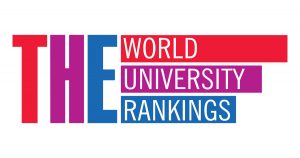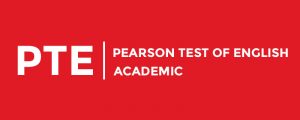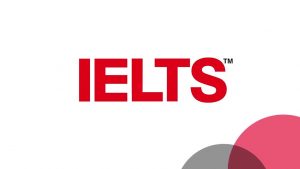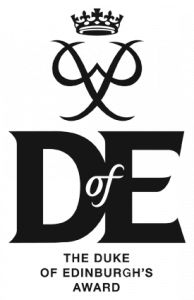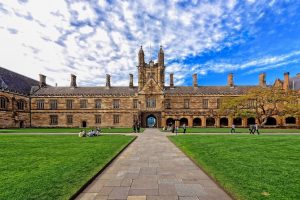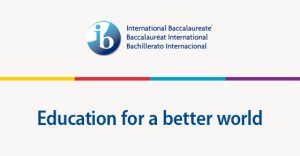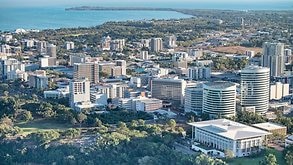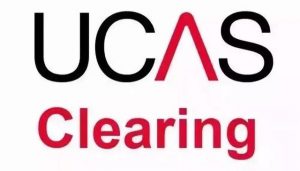隨著現今大眾對健康生活的追求上升,對優質、安全及營養豐富食品的需求不斷增加,使營養師及營養學漸受重視。而營養師亦變成不少人憧憬的職業,主要從事有關食物及營養方面的諮詢工作,為有需要的人士及病患者提供營養治療,從而改善健康質素,以及達至預防及治療疾病的效果。
由於本港目前仍未有立法監管註冊營養師的制度,註冊營養師須向香港營養師協會申請成為會員,入會資格需持有營養學的學士或碩士學位,並持有英國、澳洲、美國或加拿大的認可專業資格及完成為期6至12個月的臨床實習。此外,有意在港執業的註冊營養師每年需完成香港營養師協會的持續營養治療學進修要求,方可續牌。
職責
營養師的專業範疇包括臨床營養治療、飲食治療、食品科學、人類營養學及生物化學。營養師的主要工作包括:
- 設計、執行與評估病人的營養狀況及營養餐單
- 為病人及其家屬提供飲食諮詢服務及營養教育
- 監管病人膳食質素及安全,確保病人飲食均衡
入職條件
- 具備本地大學的營養學學士學位,及修讀香港大學專業進修學院的營養治療學深造文憑,或
- 在英國、美國、加拿大或澳洲修讀認可註冊營養師的培訓及深造課程,完成臨床實習訓練和通過專業考試後,便可取得海外註冊營養師執照
在香港開設同類學科的大學及入學條件
香港大學專業進修學院
| JUPAS Code: |
|
||
| Programme Name: | Postgraduate Diploma in Dietetics 營養治療學深造文憑 | ||
| Study Duration: | 2 Years Part time | ||
| Entry Requirement: | Have successfully completed the PgD Human Nutrition course offered by HKU SPACE. | ||
| English Requirement: | – | ||
| Additional Requirement: | Interview | ||
| Tuition Fee: | – | ||
| Website: | Here |
香港大學專業進修學院課程大綱參考
開設同類學科的海外大學及入學條件
NEWCASTLE UNIVERSITY
Coventry University
Griffith University
Queensland University OF TECHNOLOGY (QUT)
University of Brtish Columbia
University of ALBERTA
| Programme Name | Bachelor of Science in Nutrition & Food Science | Dietetics Specialization |
| Study Duration | 4 Years |
| Entry Requirement | Minimum Admission GPA IS 2.7. Admission to the program is highly competitive and largely, but not solely, based on GPA. Alberta students who present an admission GPA of 3 or greater (4-point scale) are best placed for competitive admission. |
| English Requirement | At least 6.5 with no band less than 6.0 |
| Additional Requirement | Interview, References |
| Tuition Fee | CAD $$67,347 |
| Basic Info | Link |
| Website |
University of Auckland
| Programme Name: | The Master of Health Sciences (MHSc) in Nutrition and Dietetics |
| Study Duration: | 2 Years |
| Entry Requirement: |
Applicants will normally require a minimum GPA of 6 (B+ average) to be eligible to apply for entry to the MHSc in Nutrition and Dietetics. |
| English Requirement: | International English Language Testing System (IELTS) overall score of 7.5, with no band lower than 7 |
| Additional Requirement: | NA |
| Tuition Fee: | NZ$$TBA |
| Basic Info: | Link |
| Website: | Here |
*資料來源The University of Edinburgh, University of Nottingham
課程大綱參考
Newcastle University
Stage 1 provides an understanding of human biology, physiology and biochemistry, and builds on this through the consideration of microbiology and human metabolism.
You will gain an understanding of the agri-food systems ‘from farm to folk’ and will also be introduced to the structure and properties of nutrients.
In addition, you will begin to consider your professional identity through undertaking observational and experiential visits to food and care settings, and will explore and reflect on ethics and values related to food, health and social care provision.
Modules
Stage 2 develops your knowledge of macro- and micro-nutrients and the evidence base for recommended nutrient intakes through the lifecycle.
Knowledge and skills in measurement and assessment of dietary intake and nutritional status are developed, and you will gain a deeper understanding of sociological and psychological aspects of diet and health. You’ll use a case-based approach for developing your knowledge and understanding of therapeutic diets.
Modules
Compulsory Modules
Health and Illness: Professional and Societal Perspectives
Macro- and Micronutrients
Measurement and Assessment of Dietary Intake and Nutritional Status
Using a case-based approach, Stage 3 aims to advance your knowledge of aetiology and pathophysiology of diseases and conditions and integrate this with the clinical, pharmacological and evidence-based dietetic treatments.
Simulated learning and practice placement experiences will facilitate development of dietetic consultation skills and the application of your learning in practice.
You will also gain a detailed understanding of nutritional epidemiology and how it informs public health strategy and practice, and develop your research skills through undertaking a systematic literature review.
Modules
Compulsory Modules
Nutritional Epidemiology and Public Health
Clinical Medicine and Dietetic Practice
In Stage 4, you will complete your practice learning experiences, ensuring that you have the skills necessary for registration as a dietitian.
You will also develop higher-level cognitive and analytical skills through the completion of master’s research project, contributing to the evidence base in nutrition, dietetics and public health.
You will engage in quality improvement and service redesign within a dietetic context to develop skills and leadership in shaping the future of dietetic practice, and will undertake a module in clinical education and supervision of students.
Modules
Compulsory Modules
Professional Practice in Dietetics
Griffith University
Year 1
| Learning Period | Course | Credit Points
|
|---|---|---|
| Tri 1 |
Chemistry of Biological Systems I – 1001MSC
|
10 |
| Tri 1 |
Cells, Tissues and Regulation – 1014MSC
|
10 |
| Tri 1 |
Anatomy and Physiology Systems I – 1016MSC
|
10 |
| Tri 1 | 10 | |
| Tri 2 |
Genes and Disease – 1005MSC
|
10 |
| Tri 2 |
Chemistry of Biological Systems II – 1015MSC
|
10 |
| Tri 2 |
Anatomy and Physiology Systems II – 1017MSC
|
10 |
| Tri 2,3 |
Health Challenges for the 21st Century – 1205MED
|
10 |
| Learning Period | Course | Credit Points
|
|---|---|---|
| Tri 1 |
Integrated Systems Physiology – 2012AHS
|
10 |
| Tri 1 |
Structural Biochemistry – 2008MSC
|
10 |
| Tri 1 |
Nutrition – 2210AHS
|
10 |
| Tri 1 |
Interpersonal Skills – 1008PSY
|
10 |
| Tri 3 |
Interpersonal Skills – 1008HSV
|
10 |
| Tri 2 |
Food Science – 2220AHS
|
10 |
| Tri 2 |
Metabolism – 2011MSC
|
10 |
| Tri 2 | 10 | |
| Tri 2 |
Pathophysiology – 2002MSC
|
10 |
| Learning Period | Course | Credit Points
|
|---|---|---|
| Tri 1 |
Medical Nutrition Therapy 1 – 3101AHS
|
10 |
| Tri 1 |
Nutrition Education – 3104AHS
|
10 |
| Tri 1 |
Food Service Management – 3144AHS
|
10 |
| Tri 1 |
Public Health Research Methods – 2214MED
|
10 |
| Tri 2 |
Pharmacology – 3002MSC
|
10 |
| Tri 3 |
Pharmacology – 2018PHM
|
10 |
| Tri 2 |
Community and Public Health Nutrition – 3103AHS
|
10 |
| Tri 2 |
Medical Nutrition Therapy 2 – 3102AHS
|
10 |
| Tri 2 | 10 |
| Learning Period | Course | Credit Points
|
|---|---|---|
| Tri 1,2 |
Medical Nutrition Therapy Practicum – 4110AHS (capstone course)
|
20 |
| Tri 1,2 |
Food Service Management Practicum – 4111AHS (capstone course)
|
10 |
| Tri 1,2 |
Community and Public Health Nutrition Practicum – 4112AHS (capstone course)
|
10 |
| Tri 1,2 |
Honours Dissertation – 6001AHS_P1
|
20 |
| Tri 1,2 |
Honours Dissertation – 6001AHS_P2
|
20 |
*資料來源 Newcastle University , University of Queensland
畢業後如何註冊
註冊所須資格
本港的香港大學專業進修學院(SPACE)提供兩年制兼讀課程(Postgraduate Diploma in Dietetics),詳情可瀏覽有關網頁。畢業學員符合資格申請香港特別行政區政府衛生署及香港醫院管理局的營養師職位。
香港特別行政區政府衛生署及香港醫院管理局承認該課程的同等學歷,及必須具備以下任何一項的專業資格:
- 英國Health & Care Professions Council (HCPC)的Registered Dietitian
- 美國營養師協會Commission on Dietetic Registration (CDR)的Registered Dietitian
- 加拿大Provincial Dietetic Registration的Registered Dietitian
- 澳洲營養師協會Dietitians Association of Australia (DAA)的Accredited Practising Dietitian
- 香港認可營養師學院 會員
To practise as a dietitian you must be registered with the Health & Care Professions Council (HCPC). To achieve this, you must complete an HCPC-approved programme in dietetics, either an undergraduate degree or, if you have a degree in a relevant subject, an approved postgraduate course. Programmes are also accredited by the British Dietetic Association (BDA).
To become a dietitian, you need a specific university degree, a period of practical training and pass a national licensing exam.
About your university degree:
You will need to complete a degree in human nutrition and dietetics from a university program that has been accredited by the Partnership for Dietetic Education and Practice (PDEP). These programs include classes in:
- Sciences such as chemistry, biochemistry, physiology, microbiology
- Social sciences and communication
- Nutrition through the lifecycle, chronic disease and food service
- Nutrition in the community and population health
About the practical training:
You will need to complete supervised practical training, which can happen either during your education or after graduation. Here are the different ways to get the practical training you need:
1. Integrated programs:
This is when the practical training program is part of the undergraduate degree. The practical experience in these programs might take place regularly throughout each year or may happen when the in-class learning is completed. Integrated programs usually take 5 years to finish.
2. Post-degree programs
After completing your undergraduate degree, you can apply for a spot in the following:
- Master’s or Diploma practicum program – In these programs, you apply directly to the program at a university. These programs are made up of course work and practical experience. After completion, you will have both advanced education qualifications and the practical requirements to become a dietitian.
- Postgraduate Practicum Program – These practicum programs (sometimes called an internship) are offered by hospitals and other healthcare facilities, where students get direct hands-on experience in different areas of practice for 35-40 weeks. Each organization decides how many spots they can offer students and the application criteria.
Here is a list of accredited university and practicum programs available in Canada. Each program lists its entrance and application requirements.
About the licensing exam and registration to practice:
Once you complete your degree and practical training, in most provinces you have to write the Canadian Dietetic Registration Examination (CDRE) managed by the regulatory College in each province. Find out more information here.
Becoming a Dietitians in Australia
To become a dietitian and be eligible to join Dietitians Australia (DA) and the Accredited Practising Dietitian (APD) program you must complete a university-level dietetics program accredited by Dietitians Australia.
Dietitians Australia is responsible for the accreditation of dietetic programs in Australia and maintains a list that includes both undergraduate bachelor and post-graduate accredited programs. All accredited dietetics programs are considered ‘entry-level’ in to the profession. Any enquiries regarding the programs listed should be directed to the University you are interested in attending. It is also a good idea to research the job market to ensure you are fully aware of your potential career opportunities.
Becoming a dietitian
To become a dietitian (to work at a DHB) you need to have a:
- Bachelor of Science majoring in human nutrition, or food science and nutrition, and
- Master’s degree in dietetics, or nutrition and dietetics.
- University of Auckland website – information about the Master of Health Science in Nutrition and Dietetics
- Massey University website – information about the Master of Science (Nutrition and Dietetics)
- University of Otago website – information about the Master of Dietetics.
Once qualified, you also need to be registered with the New Zealand Dietitians Board.
*資料來源
- 英國Health & Care Professions Council (HCPC)的Registered Dietitian
- 美國營養師協會Commission on Dietetic Registration (CDR)的Registered Dietitian
- 加拿大Provincial Dietetic Registration的Registered Dietitian
- 澳洲營養師協會Dietitians Association of Australia (DAA)的Accredited Practising Dietitian
- 香港營養師協會 Hong Kong Dietitians Association
以上資料僅供參考,請參閱官方網站了解詳情。




































